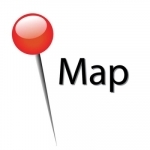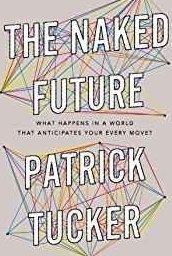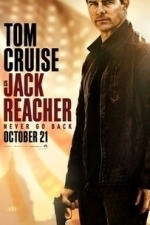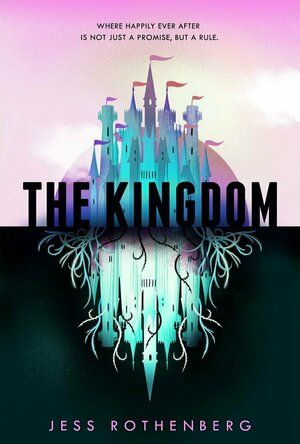
Parking Zones Vienna
Navigation and Travel
App
Parking Zones Vienna automatically determines if you need to buy a parking ticket, based on your...

Polar Flow
Health & Fitness and Sports
App
Polar Flow is a sports, fitness, and activity analyzer to be used with Polar GPS sports watches,...
BookblogbyCari (345 KP) rated The Naked Future in Books
Aug 5, 2018
This is a book about how the digital footprint we leave behind us can be used to make predictions about our future in all aspects of our lives. But are we seeing the coming to being of a dystopian science fiction, or are we tapping into a new superpower?
Every app on every device we use leaves a digital trail about us, and this has implications in the fields of medicine and the spread of infections, education and learning, and crime prediction, through to movie preference and dating.
The book predominantly examines the value to society in general but also looks at the benefits to the individual. Of course, these benefits come at a cost to our privacy, which the book also briefly addresses. Each chapter is centered on its own topic. I will mention each but in the interests of brevity won’t go into detail on each topic.
Chapter 1 begins by describing how certain apps can be extremely useful warning providers, but by the end of the chapter, we are looking at how your smartphone apps can be used to locate you, even when your GPS is turned off and you’re not geo-tagging posts or tweets. With modern statistical models and enough data points, it’s possible to predict where you will be down to the hour and within a square block one and a half years from now. Turning off your GPS doesn't actually make you less predictable, it just makes your predictability level harder to detect - your future remains naked.
Similarly, in Chapter 2 which examines deliberate self-tracking, Tucker notes that Fitbit users who are confused or ignorant of the device’s privacy settings are inadvertently sharing the data details of their sexual activity.
This seems like frightening stuff, but then the conversation turns to more benevolent uses of such technology. Chapter 3, by way of an imagined story, examines how such technology can be used to predict the spread of dangerous infections, including the identification of new strains of virus as new mutations occur.
Chapter 4 looks at the use of such technology in weather forecasting, and how it’s been used to make way for insurance against the effects of the weather for affected businesses. Chapter 5 explores how movie/book choice and ratings can be used to predict what makes a good movie/book.
We go back to the frightening stuff in Chapter 6. Here Tucker talks about how the smartphone has become the ultimate shopping accessory. Knowing what habitual time an individual wants a coffee, cig, or beer, is ideal for online advertisers, who will be able to send you a voucher/coupon or a mere suggestion right there on the spot. There could also be surveillance systems examining what you pick up and consider buying but don't put into basket /trolley. Tucker goes on to describe how data brokers such as Acxiom have begun selling on to advertisers access to not only your data to also to your future decisions.
Chapter 7 looks at education and learning, and makes the following good points: “What telemetric education offers is the chance for all students to raise their hands and be heard, without fear of confirming some unflattering, broadly held perception about their social group.” And “Imagine for a moment the power of knowing beforehand how well you would perform on a test but how disempowered you would feel if that same future was naked to your competition, or to your future potential employers.”
I like the title of chapter 8 “When Your Phone Says You’re In Love”. Here Tucker tells how online dating sites have become a living social science lab. Again here your personal details can be sold on. In the future, you could be rating your actual get-togethers on the app. Already invented is a “sociometer” which detects unconscious biological signals which show what role you’re taking in a conversation, and can then produce predictions on how the rest of the conversation will go.
Chapters 9 and 10 look at predictions in the where, when and who of acts of crime. He discusses where it has worked so far. But on this Tucker says “Predictive policing in the wrong hands looks less like a boon to public safety and more like a totalitarian hammer.”
The book concludes with Chapter 11, titled “The World That Anticipates Your Every Move”. Here one interviewee said as “Privacy is a blip on the radar of history.” Indeed the chapter ends with an obituary to privacy, where Tucker says “we will feel increasingly powerless against the tide of transparency rendering this planet in a new form as surely as the movement of glaciers carved our canyons and valleys.”
I’ve highlighted here the more worrisome aspects of the topics, but it’s important to note that Tucker does aim to offer a prescription for the situation, though it’s spread out in occasional paragraphs here and there rather than as a useful reference at the end. That said I found the actionable advice was rather brief and unoriginal.
Tucker presents a fair and balanced view of this important and highly relevant topic of our times, and the book is clearly well-researched. Some chapters show a little humor which was fun, but although the book is aimed at the layman, I often felt like I was reading a science textbook. The book is a real eye-opener, especially if it’s something you hadn’t given much thought to. The overall message of the book is clear: our data is already out there, but it’s ours first and foremost, and we can be savvy and use it to our advantage.
Movie Metropolis (309 KP) rated Jack Reacher: Never Go Back (2016) in Movies
Jun 11, 2019
Fast forward four years and we’ve got the sequel that no-one was really asking for. But is Jack Reacher: Never Go Back the improvement that was so sorely needed and could it act as a catalyst to turn this popular novel series into a proper film franchise?
Investigator Jack Reacher (Tom Cruise) springs into action after the arrest of Susan Turner (Cobie Smulders), an Army major accused of treason. Suspecting foul play, Jack embarks on a mission to prove that the head of his old unit is innocent. After crossing paths with the law, Reacher must now go on the lam to uncover the truth behind a major government conspiracy that involves the death of U.S. soldiers.
Director Edward Zwick (Blood Diamond, The Last Samurai) shoots the action realistically but even a commanding turn from Tom Cruise can’t save a bland script, so-so special effects and a plot so unoriginal, it would be easy to swap out Cruise for Liam Neeson and call it Taken 4. Or Matt Damon and label it Bourne 6? You get where I’m going with this, right?
It’s all been done so many times before and there are no twists and turns or anything remotely unusual to give the film a USP. Instead, the scriptwriters, of which there are three here, force our two central characters into a game of cat and mouse so lazy, the bad guys show up literally minutes after our heroes, with no explanation whatsoever of how they came to be in the vicinity.
Surely it wouldn’t have been difficult to add some extra exposition into the script. Cyborg baddies with GPS tracking systems implanted into their brains perhaps? I’ll save that idea for another day.
Nevertheless, the action is confidently choreographed with a Halloween parade finale being utilised rather well and Cruise plays the titular role well, despite being 54 this year. However, the supporting cast are drowned out by some horrendous dialogue and a story that doesn’t really know what to do with anyone apart from Jack Reacher himself.
And that really is about it. Jack Reacher: Never Go Back is the most satisfactory film of the year by some margin. It’s not terrible by any means and it certainly isn’t fantastic, but it makes for a passable trip to the cinema, though one that you’ll probably have forgotten about by the time you get to your front door. It’s just that middle of the road.
https://moviemetropolis.net/2016/10/21/as-average-as-you-can-get-jack-reacher-never-go-back-review/
Lottie disney bookworm (1056 KP) rated The Kingdom in Books
Oct 17, 2019
I mean with a tag line like that you can’t not be drawn in by this book! If that doesn’t grab you then the gorgeous cover art will.
Once you get past the wonderful aesthetics; the ‘Disney x Westworld x Big Little Lies’ reality that Jess Rothenberg conjures is sure to captivate you. Rothenberg manages to describe her Kingdom in such minute detail without it seeming contrite: the brazen references to meet and greets, monorails and “the park” are like catnip to a Disney geek like myself; whilst the proclamation from the outset that a crime has occurred appeals to the (slightly) more mature side of this 32 year old bookworm.
The Kingdom is a magical place where dreams come true: or is it? The star attractions: the princesses; are beautiful, perfect, always say the right thing and…are Artificial Intelligence. Their sophisticated technology, wireless signals and encyclopaedic knowledge ensure the princesses are as perfect as possible but it quickly becomes apparent that the princesses are, in fact, prisoners: constantly under surveillance, tracked by GPS implants in their wrists and strapped to their beds at “downtime”.
Ana is our princess and storyteller, opening her world to the reader and introducing us to her “sisters”, “mother” and “father” as well as those who have slightly less favourable views towards the AI, or Fantasists as they are known. There is no doubt that Ana is advanced in comparison to other Fantasists that we meet: she is aware of the park’s wireless blind spots and admits she becomes weary of some songs, unruly children and fathers with wandering eyes. Ironically, Ana is a profoundly human character with whom the reader immediately allies themselves with. Despite clearly being a suspect in the ongoing murder trial, I can’t see any reader convicting Ana. On the contrary, it is a real testament to Jess Rothenberg’s writing that the reader identifies with the Fantasists over and above every human character in her novel. Even Owen, the main human character, is never entirely trustworthy and does not reveal his intentions readily.
The format of The Kingdom is unlike anything else out there at the moment, in my opinion. The mix of prose, advertisements, interviews, trial transcripts and even apps allow our Fantasist to tell her story but also allows the reader to meet personnel and witness events that Ana would never see. This aspect is crucial to the murder mystery vibe of The Kingdom and Rothenberg leaves the reader guessing right to the very end and begging for a sequel.
Rothenberg’s kingdom is quick to show its murkier, thornier side. Those who question their surroundings are made an example of; nature is manipulated for entertainment and nothing is what it seems. If you haven’t guessed by now, I absolutely adored this book. It had me gripped from beginning to end. If you read one Disney book this year- read this one!

Flipp - Weekly Shopping
Shopping and Lifestyle
App
Flipp is the essential app for your weekly shopping. Search circular deals and coupons by item,...

SportActives
Shopping and Lifestyle
App
Med denne kundeklub-app får du adgang til 3% bonus samt en række fordele hos SportActives Gruppen,...

Biblia de Estudio y Audiolibro
Book and Reference
App
This Reina Valera Bible has been carefully made by believers for believers willing to have a closer...




